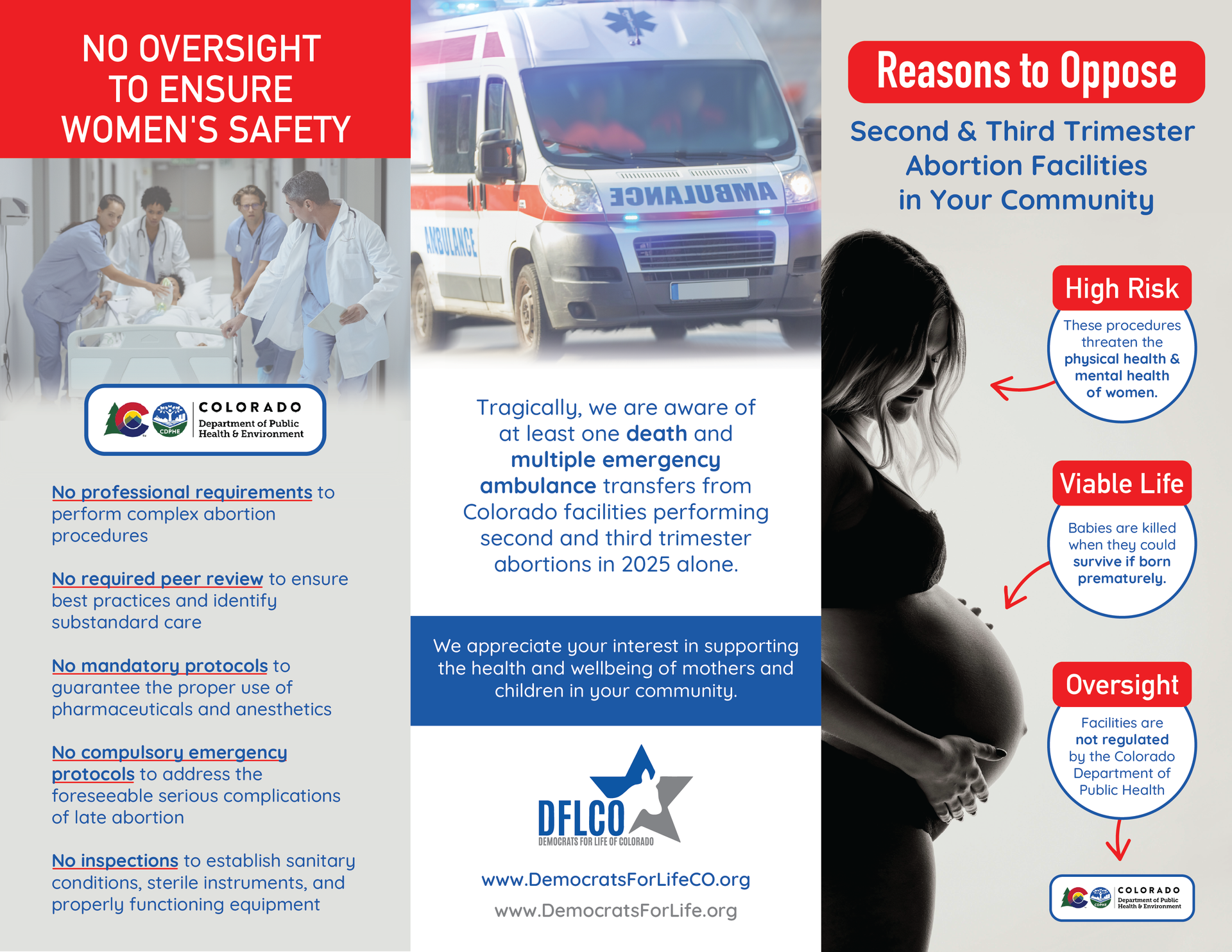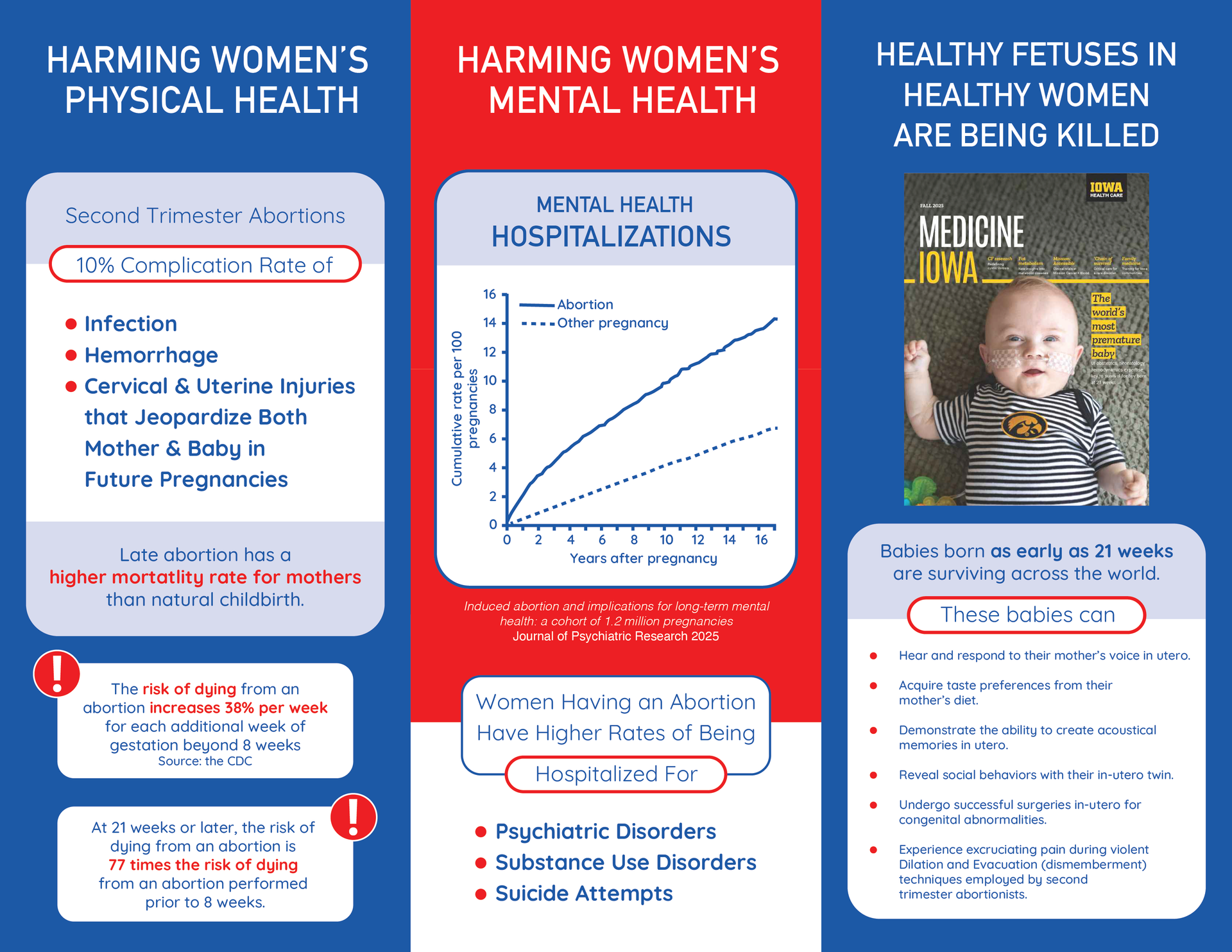
About Us
We are the Colorado Chapter of Democrats for Life of America
Pro-Life for the Whole Life
We believe:- The Democratic Party should be the champion of human rights, especially empowering those who are marginalized or voiceless.
- That every human being, regardless of their stage of development, gender, sex, race, ethnicity, religion, sexual orientation, abilities or financial means, has an inalienable right to life, liberty, and the pursuit of happiness.
We oppose:- Any personal or state-sanctioned action that deprives a human being of these rights including abortion, capital punishment, assisted suicide, and euthanasia
We endorse:- Policies and legislation that promote the inherent dignity and value of every human being, including, but not limited to, ensuring a quality education, livable employment, affordable healthcare, supported pregnancy, and a clean environment.
We are willing to work with those who disagree with certain elements of our whole life ethics but who embrace other parts of our vision to achieve a life affirming, progressive, and more equitable future.
We are the Colorado Chapter of Democrats for Life of America
Pro-Life for the Whole Life
We believe:
- The Democratic Party should be the champion of human rights, especially empowering those who are marginalized or voiceless.
- That every human being, regardless of their stage of development, gender, sex, race, ethnicity, religion, sexual orientation, abilities or financial means, has an inalienable right to life, liberty, and the pursuit of happiness.
We oppose:
- Any personal or state-sanctioned action that deprives a human being of these rights including abortion, capital punishment, assisted suicide, and euthanasia
We endorse:
- Policies and legislation that promote the inherent dignity and value of every human being, including, but not limited to, ensuring a quality education, livable employment, affordable healthcare, supported pregnancy, and a clean environment.
We are willing to work with those who disagree with certain elements of our whole life ethics but who embrace other parts of our vision to achieve a life affirming, progressive, and more equitable future.
Challenges to the Health and Safety of Colorado Women
The Case for Oversight by the Colorado Department of Public Health
(See Blog for More)



